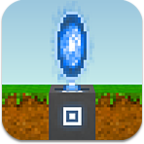Mining: Difference between revisions
>Hazza |
>McClaw |
||
| (One intermediate revision by one other user not shown) | |||
| Line 13: | Line 13: | ||
Mining with a pickaxe yields more [[Time Crystal|time crystals]]. The yield multiplier for gem pickaxes applies to time crystals, so the best gem pickaxe available should be used to maximize yield. | Mining with a pickaxe yields more [[Time Crystal|time crystals]]. The yield multiplier for gem pickaxes applies to time crystals, so the best gem pickaxe available should be used to maximize yield. | ||
== | ==Mining Styles== | ||
Selection of a mining style is up to the player, but may be influenced by in-game resources or available play time. Simpler styles can be quicker and produce ready rewards. More thorough methods require more time and use up [[tool]]s, but usually insure maximum results. Note that most ores are more abundant as depth increases and some are only found at deep levels. | |||
===Spelunking=== | |||
The simplest form of mining is to explore [[cave]]s and look for visible ores. By opening passages where natural caves narrow, it is possible to expose long, winding paths through extensive areas. [[Water]], [[magma]], and [[Cave Troll|cave trolls]] are typical hazards. | |||
===Grid Mining=== | |||
A more thorough process is to dig regular passages vertically, horizontally, diagonally, or in some combination through the bedrock. This allows both the exposure of areas not accessible by natural caves and, with careful placement, visual examination of unmined stone for ore deposits. Planning is still required to overcome underground hazards. | |||
===Strip Mining=== | |||
The most thorough mining method is to remove everything, although occasional platforms may be left or constructed for ease of [[travel]]. Water, if not left in place, can be relocated with planned draining into prepared basins. Strip mining produces large quantities of basic stone, which can be used for [[crafting]], [[construction]], or processed into [[gravel]] and ores using an [[Electric Press|electric press]] and [[Electric Sluice|sluice]]. | |||
==Gallery== | |||
<gallery> | |||
File:BH strip mining 1.png|Blockhead performing extensive horizontal strip mining near magma | |||
File:BH strip mining 2.png|Blockhead performing extensive vertical grid mining between cave regions | |||
File:BH strip mining 3.png|Blockhead performing basic horizontal grid mining | |||
File:BH strip mining 4.png|Blockhead performing basic horizontal grid mining through caves | |||
</gallery> | |||
[[Category:Guide]] | [[Category:Guide]] | ||
Latest revision as of 10:14, 8 January 2015
- See also: Caving
Mining is the removal of objects from caves. Supplies such as food and light source are typically needed for a mining trip.
Ore
Mining ore can be done by hand, but is much more efficiently done with a pickaxe (yielding three ores of that type instead of one). Mining speed is increased with each successive pickaxe upgrade (with the exception of the gold pickaxe which is slower than steel, but has other benefits).
Using gem pickaxes increases the yield. Like normal pickaxes, these benefits increase with progressively more expensive gem pickaxes (a diamond pickaxe yields six times the usual amount). The life of gem pickaxes can be extended by only using them for the final strike; a normal pickaxe can be used until the block is nearly mined, then a gem pickaxe for the multiplier.
Gems
Gems are found in caverns. There are five types of gems, diamond, ruby, emerald, sapphire and amethyst. They are picked up by hand, not mined using a pickaxe with the exception of the gold pickaxe which has a chance to randomly produce gems, ores, or time crystals with each strike. Since the gold pickaxe may produce bonus resources for each strike, using it only for the final strike (like with gem pickaxes) is only beneficial in prolonging its life, as it will not increase the yield.
Time Crystals
Mining with a pickaxe yields more time crystals. The yield multiplier for gem pickaxes applies to time crystals, so the best gem pickaxe available should be used to maximize yield.
Mining Styles
Selection of a mining style is up to the player, but may be influenced by in-game resources or available play time. Simpler styles can be quicker and produce ready rewards. More thorough methods require more time and use up tools, but usually insure maximum results. Note that most ores are more abundant as depth increases and some are only found at deep levels.
Spelunking
The simplest form of mining is to explore caves and look for visible ores. By opening passages where natural caves narrow, it is possible to expose long, winding paths through extensive areas. Water, magma, and cave trolls are typical hazards.
Grid Mining
A more thorough process is to dig regular passages vertically, horizontally, diagonally, or in some combination through the bedrock. This allows both the exposure of areas not accessible by natural caves and, with careful placement, visual examination of unmined stone for ore deposits. Planning is still required to overcome underground hazards.
Strip Mining
The most thorough mining method is to remove everything, although occasional platforms may be left or constructed for ease of travel. Water, if not left in place, can be relocated with planned draining into prepared basins. Strip mining produces large quantities of basic stone, which can be used for crafting, construction, or processed into gravel and ores using an electric press and sluice.
Gallery
-
Blockhead performing extensive horizontal strip mining near magma
-
Blockhead performing extensive vertical grid mining between cave regions
-
Blockhead performing basic horizontal grid mining
-
Blockhead performing basic horizontal grid mining through caves




